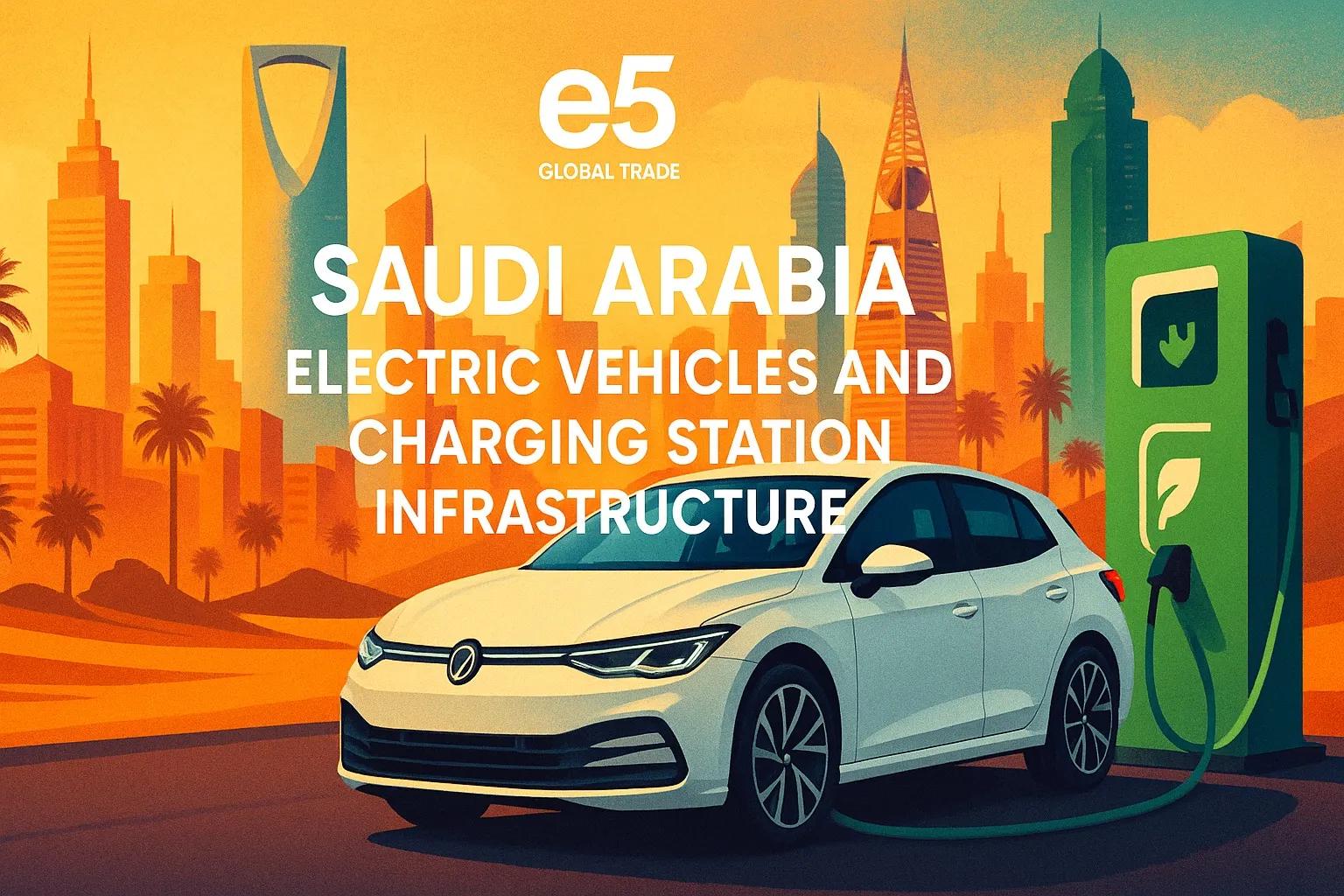Saudi Arabia: Electric Vehicles and Charging Station Infrastructure (2024-2025 Current Status) As part of its Vision 2030, Saudi Arabia is making significant investments in electric vehicles (EVs) and charging infrastructure to reduce its dependence on fossil fuels, promote sustainable development, and develop new technology sectors. Despite being rich in oil, the country has made electric vehicles a strategic priority with its goals of energy diversification and air pollution reduction. Electric Vehicle Market and Incentives 1. Market Growth As of 2023, there will be approximately 15,000-20,000 electric vehicles in Saudi Arabia. This number is expected to exceed 300,000 by 2030. Brands such as Tesla, BYD, Nissan, BMW, Mercedes, and local manufacturer Ceer Motors stand out. 2. Ceer Motors – Local Production Ceer Motors was announced in 2022 as Saudi Arabia’s first domestic automobile brand. It was founded by a partnership of PIF (Public Investment Fund) and Foxconn. The first models will be released in 2025. Both the local market and export are targeted. Ceer has signed technology sharing agreements with brands such as BMW and Porsche. 3. Incentives and Tax Advantages 0% special consumption tax on electric vehicles (15% on gasoline vehicles). Customs duty exemption. Discounts on license plate and registration fees. It is mandatory for EV purchases in public institutions. Charging Station Infrastructure 1. Current Status (2024)Approximately 2,000+ charging points (AC and DC combined). Most of these are concentrated in Riyadh, Jeddah, Mecca and the Eastern Region (Dammam, Khobar). AC charging (slow/medium speed) is the majority; DC fast charging points are increasing rapidly. 2. Targets: 1,000+ fast-charging stations and 10,000+ charging points in total by 2030. Charging access is planned for all highways, shopping malls, public buildings, and residential areas. 3. Key Projects and Companies: EV Green (Saudi EV Solutions) – The country’s largest charging network operator, supported by PIF. It began operations in 2023. MOBILITY – A dedicated unit for electric vehicles and charging infrastructure. It coordinates urban and highway charging networks. Saudi Electricity Company (SEC) – Provides grid integration and electrical infrastructure support. Tesla Supercharger – First stations opened in Riyadh and Jeddah. The target of 50+ Superchargers by 2025. International companies such as Shell Recharge, EVBox, and ABB are also involved in projects with local partners. Energy Source and SustainabilityThe aim is for charging stations to increasingly be powered by renewable sources (especially solar energy). 100% clean energy EV infrastructure is being established in mega projects such as NEOM, Red Sea Project, and The Line. The 30 GW renewable energy target by 2030 will reduce the carbon footprint of EV charging. Challenges EncounteredInadequate charging infrastructure in urban and rural areas. The impact of extreme temperatures in summer on battery performance and charging time. Lack of awareness for changing consumer habits. The underdevelopment of repair, maintenance, and technical service infrastructure. ConclusionSaudi Arabia aims to become one of the leading countries in the Middle East in the transition to the electric vehicle revolution. By using its oil revenues wisely, it is building a sustainable transportation ecosystem through both domestic production and infrastructure investments. Projects like Ceer Motors and EV Green, in particular, demonstrate the country's commitment to this area. For international automotive and energy companies, Saudi Arabia stands out as one of the largest and fastest-growing EV markets in the Middle East.
E5 Global Trade | Yazılar
Saudi Arabia Electric Vehicles and Charging Station Infrastructure
Küresel Haber Ajansı
·


